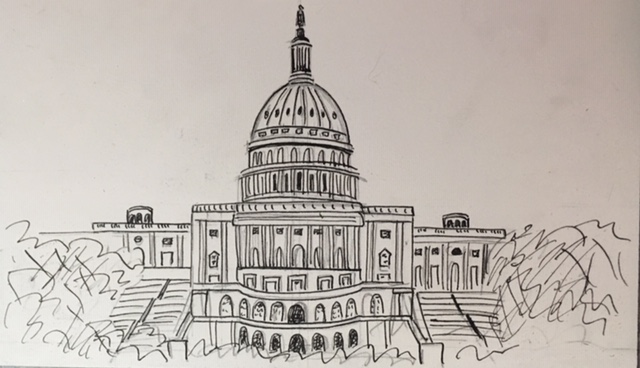Comment Posted in Response to Federal Draft Report on Pain Management Best Practices

The federal government’s Pain Management Best Practices Interagency Task Force has a draft report posted on the internet right now. Here’s the link to that report:
This report is open to comments from the public until April 1, 2019. Here’s a link to where comments can be uploaded:
https://www.regulations.gov/document?D=HHS-OS-2018-0027-0001
The following is my comment:
I am a law-abiding citizen with a birth defect to my pancreas causing chronic, severe, incurable pain for 22 years. I’ve taken the same stable high dose of MS Contin for at least the past 12 years. With my medication, I’m able to lead a normal life – keep house, garden, travel, and produce and sell watercolor landscape paintings and jewelry. There is no physical therapy or massage that can change the pain that runs from my upper left abdomen through to the middle of my back.
This report is just more churning of the same old bogus drug warrior issues. But the types of professionals who have had input are disturbing. Promoters of unproven remedies like acupuncture, yoga, meditation have no place in discussion of medical care. Nor should addiction specialists have any involvement in pain treatment.
People who would benefit by the desperation of patients with insufficient pain control should not be allowed to be part of a process that could make opiates harder to obtain, resulting in patients being more desperate and vulnerable to useless remedies.
Giving addiction specialists influence over availability of pain treatments is like having specialists in bone cancer subjected to veto by psychologists treating “transabled” clients who wish to remove a body part, because both conditions could involve an amputation.
The problems of self-identified addicts, and people forced into treatment by courts, employers or family are completely different from problems chronic pain patients face. There’s no reason to believe criminals’ claims that the influence of – or wish to obtain – drugs “causes” their criminal acts. Courts and the medical profession rejected the same claim when made by criminals about alcohol during Prohibition.
While government officials with no medical training have for many years been vetoing the medical decisions of doctors who treat patients with severe pain, our nation provides free needles to people who want to inject illegally purchased drugs. Not only do our tax dollars pay for the needles and the facilities where those needles are dispensed, but also services such as referrals for free medical, mental health and social services.
Of course, self-identified addicts and the professionals who advocate for them, can make noise if they don’t get what they want in terms of facilities, tax-funded programs and influence on the medical care of patients who have never engaged in the behaviors that cause people to come under the supervision of addiction specialists.
Pain patients and the doctors who treat us are uniquely vulnerable. Take away pain meds and the patients will be crying in pain in their homes, not be marching in the streets for a redress of grievances. Doctors are subject to loss of license and livelihood – or even jail – not only if they do something wrong, but if any of the pills they prescribed can be claimed to have been “misused.”
Our government cannot – and should not be expected to – protect every citizen from every possible bad thing that might happen to an individual. And as our 105 year-long experiment in drug prohibition, and at least $1.4 trillion dollars spent since 1972 demonstrate, we can’t protect people from things they are determined to do to themselves. But there is one bad outcome that our government can stop, right now. Our government could put pain treatment, including decisions about dosage, back into the hands of doctors.
